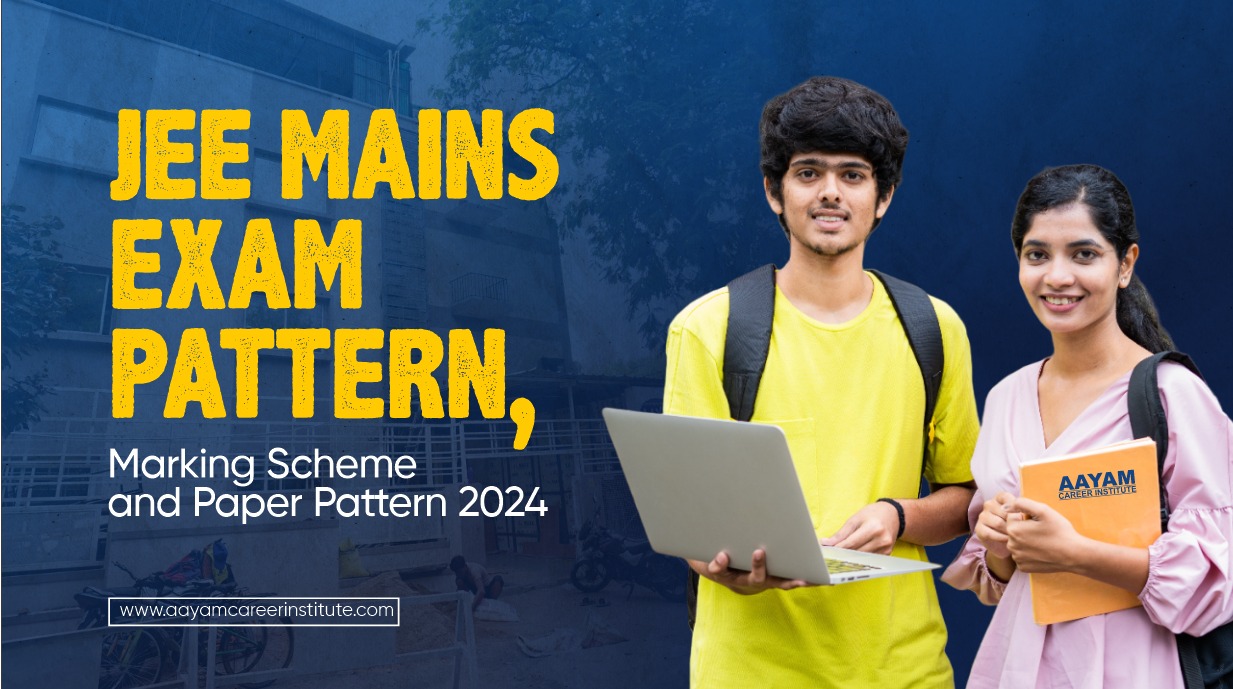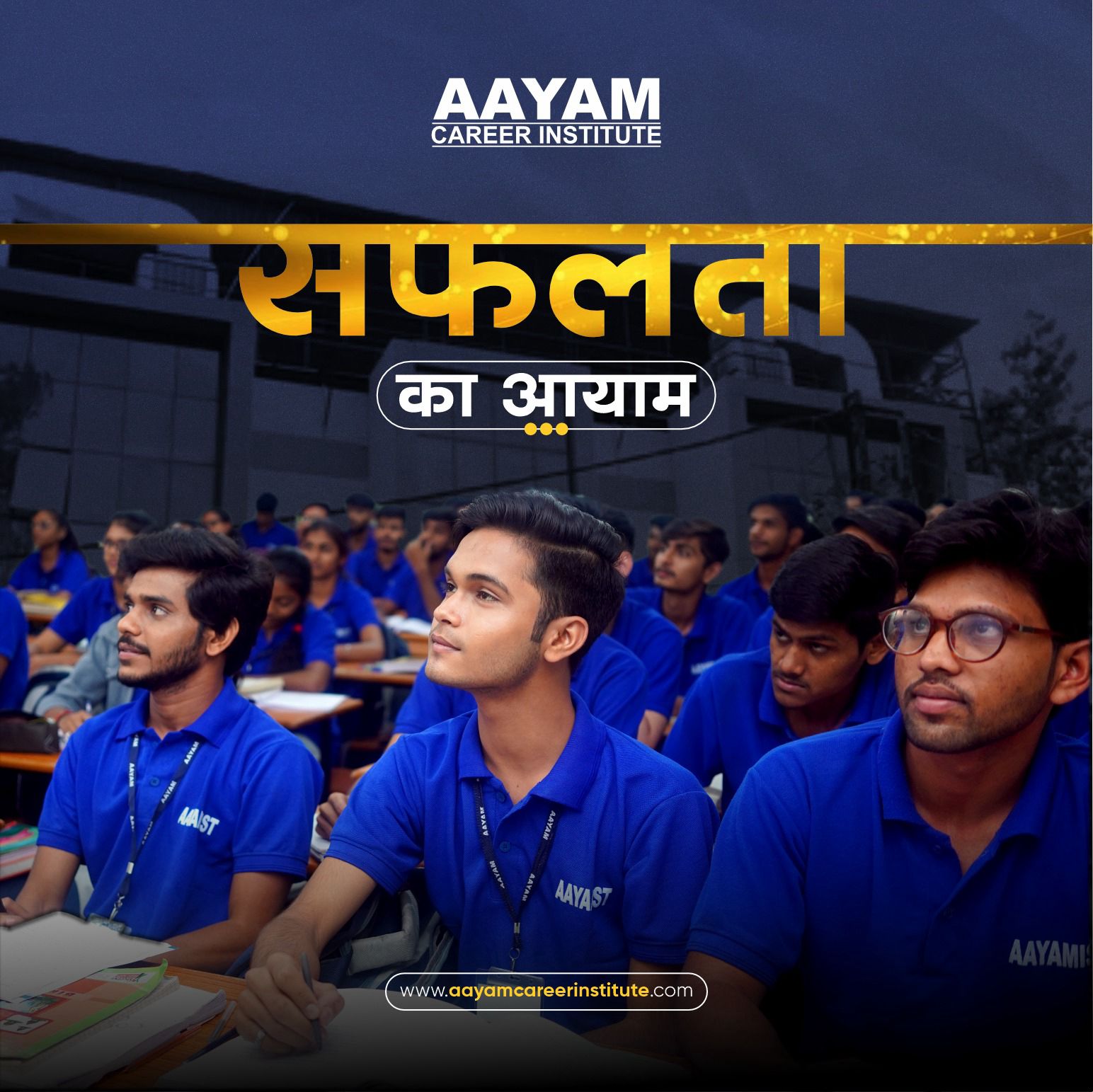
JEE Mains Exam Pattern, Marking Scheme and Paper Pattern 2024

Read all about how many questions asked in jee mains with the latest jee main exam pattern and marking scheme. The jee main exam pattern 2024 includes paper1 and paper2
JEE Mains Exam Pattern 2024: The Number of Questions in JEE Mains
The Joint Entrance Examination (JEE) Mains is one of the most competitive engineering entrance exams in India, known for its challenging paper pattern and emphasis on testing core concepts. Over 13 lakh students appear for JEE Mains every year with the dream of securing admission into prestigious institutions like the IITs, NITs and IIITs.
One of the key aspects that sets JEE Mains apart is the large number of questions that students have to tackle in a limited time duration. The number of questions asked in each subject - Physics, Chemistry and Mathematics - has varied over the years, along with the overall exam format and structure. Let's analyze in detail the evolution of JEE Mains question pattern over the past decade:
Evolution of JEE Mains Exam Paper Pattern
JEE Mains was introduced in the year 2013 and replaced the erstwhile AIEEE exam. In the initial few years, it was conducted in both online and offline modes in a single session annually. The exam format consisted of one paper with a total of 90 questions - 30 each from Physics, Chemistry and Mathematics.
From 2018 onwards, the exam was made completely online to enhance security and improve logistics. The number of attempts per year were also increased to allow students multiple chances to improve their score. As of 2022, JEE Mains is now conducted twice a year - January and April, with each attempt having two sessions. Let's look at how the question distribution has changed over the years:
Some key observations:
- The total number of questions has remained unchanged at 90 in Paper 1 over the past decade.
- The subject-wise distribution is balanced with students having to tackle 30 questions from each - Physics, Chemistry and Mathematics.
- There has been no deviation in the question allocation across subjects and sections since 2013 when the Mains exam was introduced.
The exam methodology provides equal weightage to the three core subjects that form the foundation of engineering education.
Key observations:
- Paper 2 also has remained consistent with 82 total questions since JEE Mains inception.
- Mathematics carries 30 questions similar to Paper 1. 50 questions test aptitude and logical reasoning.
- The drawing section has 2 questions designed to evaluate visualization and design capabilities.
- This format tests quantitative aptitude, reasoning ability and artistic skills - competencies required for Architecture/Planning.
In summary, there has been little variation in the number of questions paper-wise and subject-wise over the past 10 years indicating a standardized exam pattern. The detailed split up of questions across topics within each subject is provided in the official JEE Mains syllabus.
Let us now analyze the latest exam format and question pattern for JEE Mains 2023:
JEE Main 2024 Exam Pattern
In 2024, JEE Mains Paper 1 and Paper 2 will follow the distribution below:
JEE Exam Pattern for Paper 1
- Mode of Exam: Computer Based Test (Online)
- Duration: 3 hours
- Marking Scheme: +4 marks for correct, -1 for incorrect, 0 for unattempted
- Total Questions: 90
- Subject-wise distribution:
- Physics - 30 questions
- Chemistry - 30 questions
- Mathematics - 30 questions
JEE Exam Pattern for Paper 2 (B.Arch/B.Planning):
- Mode of Exam: Computer Based (Online) + Pen & Paper Based
- Duration: 3 hours
- Total Questions: 82
- Subject-wise distribution:
- Mathematics - 30 questions
- Aptitude Test - 50 questions
- Drawing Test - 2 questions
JEE Mains 2024 Syllabuss
JEE Mains 2024 Syllabus - Paper 1 (B.E./B.Tech)
Paper 1 is conducted for admission to undergraduate engineering programs (B.E./B.Tech). The paper has questions from Physics, Chemistry and Mathematics.
Physics Syllabus
The physics portion covers the following topics:
- Physics and measurement
- Kinematics
- Laws of motion
- Work, energy and power
- Rotational motion
- Gravitation
- Properties of solids and liquids
- Thermodynamics
- Kinetic theory of gases
- Oscillations and waves
- Electrostatics
- Current electricity
- Magnetic effects of current
- Electromagnetic induction and alternating currents
- Electromagnetic waves
- Optics
- Dual nature of matter and radiation
- Atoms and nuclei
- Electronic devices
- Communication systems
Key areas of focus are mechanics, electromagnetism, thermodynamics, optics, and modern physics.
Chemistry Syllabus
The chemistry syllabus includes the following topics:
- Solid state
- Solutions
- Electrochemistry
- Chemical kinetics
- Surface chemistry
- Isolation of elements
- p-block elements
- d- and f-block elements
- Coordination compounds
- Haloalkanes and haloarenes
- Alcohols, phenols and ethers
- Biomolecules
- Chemistry in everyday life
Along with basic concepts such as atomic structure, chemical bonding, gaseous state and redox reactions.
Mathematics Syllabus
Key areas covered in mathematics are:
- Sets, relations and functions
- Complex numbers
- Matrices and determinants
- Mathematical reasoning
- Statistics and probability
- Trigonometry
- Mathematical induction
- Sequences and series
- Permutations and combinations
- Binomial theorem
- Coordinate geometry
- Limits, continuity and differentiability
- Application of derivatives
- Integral calculus
- Differential equations
- Three dimensional geometry
- Vector algebra
In summary, Paper 1 tests a student's conceptual grasp and problem-solving skills in Physics, Chemistry and Mathematics up to higher secondary level.

JEE Mains 2024 Syllabus - Paper 2A (B.Arch)
Paper 2A is conducted for admission to undergraduate Bachelor of Architecture (B.Arch) programs. The paper consists of 3 sections:
Mathematics Syllabus
The mathematics portion covers the following topics:
- Sets, relations and functions
- Complex numbers
- Matrix and determinants
- Sequences and series
- Limit, continuity and differentiability
- Application of derivatives
- Integral calculus
- Coordinate geometry
- Trigonometry
- Mathematical reasoning
- Statistics and probability
Key areas of focus are algebra, trigonometry, coordinate geometry, calculus, vectors and 3D geometry.
Aptitude Test Syllabus
The aptitude section tests:
- Spatial ability
- Observation skills
- Design skills
- Analytical reasoning
- Logical reasoning
- Abstract reasoning
- Quantitative reasoning
- Verbal reasoning
Architectural Aptitude Topics:
- Visualizing 3D objects
- Analytical reasoning
- Mental Ability
- Pictorial reasoning
- Observing and recognizing patterns
- Interpreting scenarios
Drawing Test Syllabus
The drawing test evaluates:
- Freehand drawing skills
- Geometrical perception
- Perspective drawing
- Engineering drawing
- Architectural awareness
Key focus areas are 3D perception, sketching skills and spatial understanding.
JEE Mains 2024 Syllabus - Paper 2B (B.Planning)
Paper 2B is for admission to Bachelor of Planning (B.Planning) programs and also has 3 sections:
Mathematics Syllabus
Same syllabus as specified for Paper 2A.
Aptitude Test Syllabus
Same aptitude topics as Paper 2A.
Planning Based Test Syllabus
This section tests:
- Observation skills
- Analytical reasoning
- Numerical ability
- General awareness of society and built environment
- Basic knowledge of planning concepts
Key focus areas:
- Comprehension of information
- Analytical abilities
- Numerical computation
- Contextual awareness
In summary, Paper 2A and 2B evaluate mathematical skills, reasoning ability and domain knowledge required for Architecture and Planning courses respectively.
Some key tips to prepare as per the JEE Main Exam pattern:
- Equal emphasis should be given to all three subjects - Physics, Chemistry and Mathematics while preparing for Paper 1.
- Practice previous year questions from each subject to understand the typical level of difficulty and variety.
- Paper 2 requires aptitude and drawing skills apart from mathematics. Brush up concepts learnt in 11th and 12th standards.
- For the drawing test, focus on perspective drawing, sketches and spatial reasoning ability.
- Refine your skills through mock tests that mimic the actual exam conditions. Learn to complete sections on time.
- Devise a personalized study plan based on your current level and the number of questions you need to prepare for. Give equal weightage to all subjects while allocating self-study hours.
- Master important theoretical concepts and formulae. Equally focus on numerical and application based problems.
- Work on speed and accuracy. Discipline yourself to solve questions correctly within 1-1.5 minutes on average.
Exam Day Strategies Based on the Marking Scheme
On the final exam day, keep these strategies in mind while attempting the different sections as per the question format:
- Starting with your strongest area in the paper can help build confidence. However, ensure you allocate sufficient time for other sections.
- Write down important formulae you are likely to forget on the rough sheet provided before you begin.
- Skim through the entire paper to assess the nature of questions, level of difficulty and your familiarity.
- Keep an eye on the clock. Divide time equally among Physics, Chemistry and Maths for Paper 1.
- Maintain speed but avoid haste. Read questions patiently before answering. Double check responses before moving forward.
- In case you find a particular section challenging, attempt other sections first where you can score better. Come back to difficult parts later.
- For numerical problems, first estimate if your answer matches the options given. Avoid blind guesswork.
- Stick to the number of questions prescribed. Choose the best 75 out of 90 in Paper 1 and 77 out of 82 in Paper 2 to attempt.
- Manage time wisely between sections. Spend only the required time per section without lapsing.
Being aware of the exam format and having a clear strategy based on the number of questions are crucial to attempt JEE Mains effectively. Prepare systematically, revise concepts thoroughly and take timed mock tests for enhanced performance. Stay motivated as you gear up for the exam!

Connect with Us


